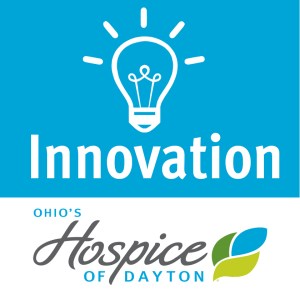Ohio’s Hospice of Dayton invites the community to remember and celebrate their loved ones at…

Ohio’s Hospice of Dayton Tapped for Medicare Pilot Project
Ohio’s Hospice of Dayton has been approved, among the 4,000 plus-Medicare-certified hospice providers across the country, to participate in the new Medicare Care Choices Model. The Centers for Medicare & Medicaid Services (CMS) plans to launch this “concurrent care” demonstration authorized by the Patient Protection and Affordable Care Act (PPACA) in January 2016.
Ohio’s Hospice of Dayton, along with other hospices selected for the pilot, will provide palliative support services in the form of routine home care and in-home respite to patients with advanced cancers, chronic obstructive pulmonary disease, congestive heart failure and HIV/AIDS who meet hospice eligibility requirements. The patients will have the option to also receive services provided by their curative healthcare providers at the same time. Hospices selected for the five-year demonstration will receive $400 per beneficiary per month (PBPM) to provide the palliative care services.
Hospices selected for the project must be Medicare-certified hospice and able to demonstrate experience providing care coordination and case management with a network of various types of heal thcare providers, as well as shared decision-making to beneficiaries prior to electing the Medicare hospice benefit in conjunction with their referring providers and suppliers.
thcare providers, as well as shared decision-making to beneficiaries prior to electing the Medicare hospice benefit in conjunction with their referring providers and suppliers.
Currently, Ohio’s Hospice of Dayton provides concurrent care to hospice patients with chronic heart failure, chronic obstructive pulmonary disease, and pulmonary hypertension. No other hospice provider in the Miami Valley provides comprehensive concurrent care services to their hospice patients. In addition to differentiating the organization from competitors in the market, the expanding concurrent care program is aligned with the mission to focus on inclusionary—rather than exclusionary—practices of patient access and delivery of superior end-of-life care.
According to Ohio’s Hospice of Dayton Vice President of Mission Support Kim Vesey, the Care Choice option will greatly benefit patients in our community that do not chose hospice. “Patients with a terminal diagnosis who wish to continue with aggressive treatments will have the option to do so. They will also receive the opportunity to benefit from the holistic, interdisciplinary care provided by the hospice team. Family caregivers will also have the support from the hospice team that is a hallmark of the hospice model of care. We believe that the Medicare Care Choices Model project will validate that patients who have access to hospice alongside curative care have better outcomes, higher family caregiver satisfaction, and benefit from the expertise of hospice earlier in their care.”
About Ohio’s Hospice of Dayton
Ohio’s Hospice of Dayton is a non-profit hospice provider and has served patients and families in the Miami Valley for over 35 years in their homes, extended care and assisted living facilities and the Hospice House located in Dayton. Ohio’s Hospice of Dayton is a member of Ohio’s Hospice, a partnership of non-profit hospice and palliative care providers in Ohio committed to a shared vision of strengthening and preserving community based compassionate care for those with life-limiting illnesses.
Additional Background from CMS Announcement:
Many seniors, disabled Americans, and family members of individuals who suffer from life limiting illnesses must choose between the support services provided through hospice care or curative treatment. Fewer than half of eligible Medicare beneficiaries use hospice care and most only for a short period of time. Under current Medicare payment rules, individuals are not able to receive both palliative and curative treatment concurrently.
Today, the Centers for Medicare & Medicaid Services (CMS) announced the hospices that have been selected to participate in the Medicare Care Choices Model. The model provides Medicare beneficiaries who qualify for coverage under the Medicare hospice benefit and dually eligible beneficiaries who qualify for the Medicaid hospice benefit the option to elect to receive supportive care services typically provided by hospice while continuing to receive curative services.
“This model empowers clinicians, beneficiaries and their families with choices and is part of our broader efforts to transform our health care system into one that delivers better care, makes smarter payments, and puts patients in the center of their own care,” said HHS Secretary Sylvia M. Burwell. “We want to do what we can to help families find the care that is right for their loved one.”
Due to robust interest, CMS expanded the model from an originally anticipated 30 Medicare-certified hospices to over 140 Medicare-certified hospices and extended the duration of the model from 3 to 5 years. This is expected to enable as many as 150,000 eligible Medicare beneficiaries with advanced cancers, chronic obstructive pulmonary disease, congestive heart failure, and human immunodeficiency virus/acquired immunodeficiency syndrome who receive services from participating hospices to experience this new option and flexibility.
Under the model, participating hospices will provide services that are currently available under the Medicare hospice benefit for routine home care and respite levels of care, but cannot be separately billed under Medicare Parts A, B, and D. Services will be available around the clock, 365 calendar days per year, and CMS will pay a per beneficiary per month fee ranging from $200 to $400 to participating hospices when delivering these services under the model. Services will begin starting January 1, 2016 for the first phase of participating hospices and in January 2018 for the remaining participating hospices.
HHS’s plan to make this vision a reality is to pay providers for what works, unlock health care data, and find new ways to coordinate and integrate care to improve quality. With passage of the Affordable Care Act, we took one of the most important steps toward a more accessible and affordable health care system in almost 50 years. With the new tools provided under the law, we have an opportunity to seize this historic moment to transform our health care system into one that works for the American people.
For more information on the model, visit http://innovation.cms.gov/initiatives/Medicare-Care-Choices/.



